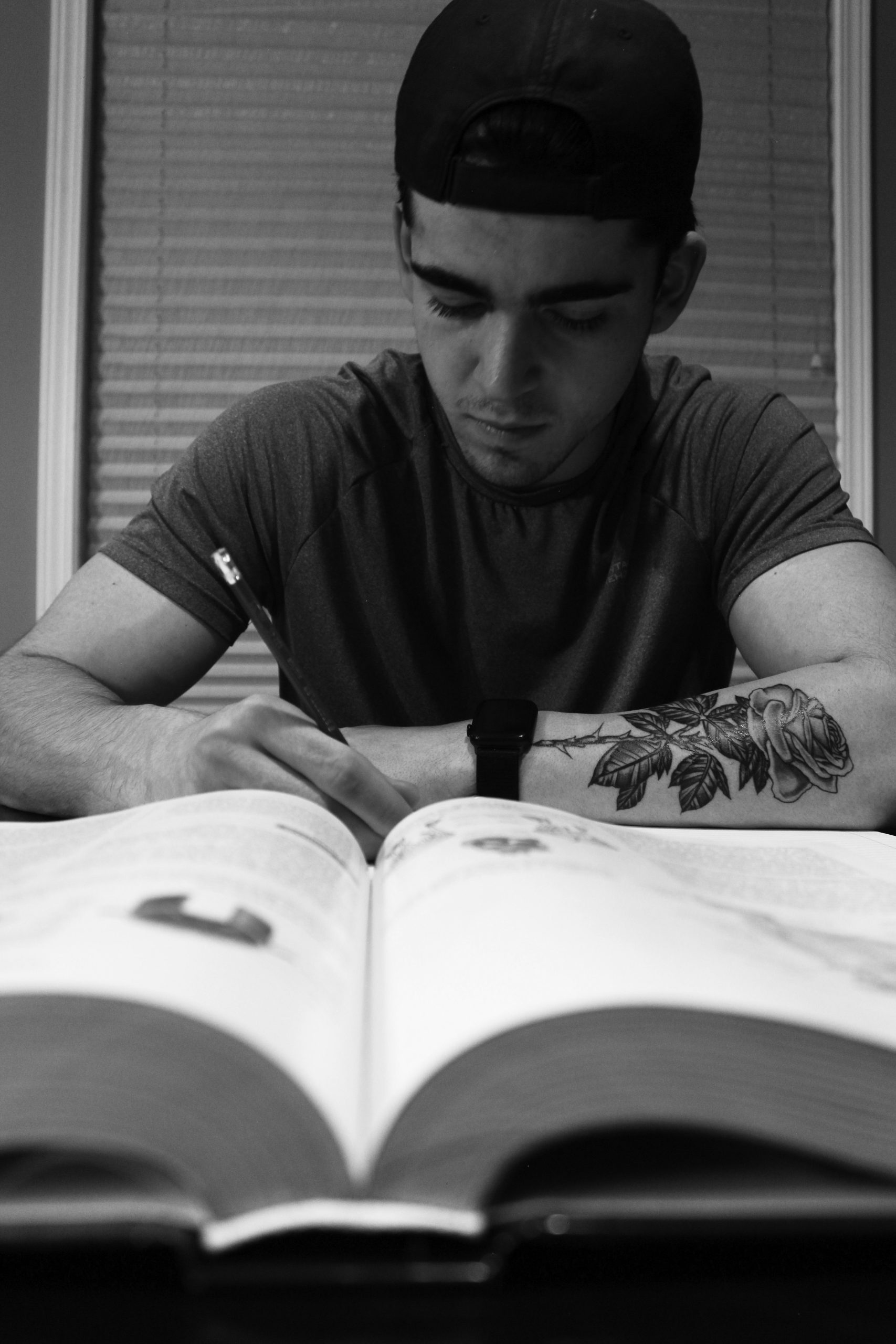Your heart is racing as you feel your palms sweating, the sound of the clock ticking becomes louder and louder as every second passes. Running on caffeine and little sleep you are sitting in a chair that starts to feel like a solid brick against your back. There is only a couple more hours till your big exam that you have been cramming for.
There are various ways to tackle studying and stop last minute stress of upcoming tests.
Implementing these four best tips to studying can help the cramming for tests become less daunting.
Tip one
Carson Ogloff, a Lethbridge Polytechnic first year Primary Paramedic Care Student says he takes proactive tips to not help him not procrastinate.
“Don’t leave everything till the last minute and then when you’re stressed out and you’re worried about it, trying to cram it all in at the end doesn’t work very well. Take the time that you have early on to break it up and do it in intervals while you have the time,” says Ogloff.
According to What Is Procrastination by Kendra Cherry published on Very Well Mind in July. 7, 2024, “an estimated 75 per cent of students procrastinate regularly and over half of these students feel that this behaviour is a persistent problem.”
“Procrastination can have a serious impact on many life areas, including a person’s mental health, and social, professional, and financial well being,” according to What Is Procrastination by Kendra Cherry published on Very Well Mind in July. 7, 2024,
Avoid procrastinating and allow for time before a test or exam to help relax your body and mind.
Tip two
Elise Resler, a Red Deer Polytechnic first year Dental Hygiene student, says she starts the studying process in advance.
“I like to start reviewing the material a week in advance with short study periods,” says Resler.
Time management is an important part of studying, and allows for a decrease in studying stress.
A key practice of studying is making a to-do list, according to What Is Procrastination by Kendra Cherry published on Very Well Mind in July. 7, 2024, “take baby steps, [by] breaking down items on your list into small, manageable steps [helps] so that your tasks don’t seem overwhelming.”
A list allows you to physically see the obstacles that come along with the battle of studying.
Tip three
Along with taking breaks, exercise allows physical activity within a study break.
According to Study-boosting benefits of exercise published on University College London in May. 5, 2020, “research shows that physical exercise releases proteins in the brain that can actually improve your memory and increase cognitive performance.”
Ogloff says he enjoys working out and incorporates his passion for going to the gym in his studying.
“Go and work out during a study break, and do something productive. It is something good for your body,” says Ogloff.
Walking away from studying will allow you to come back with a fresh mind.
This could be going for a walk, doom scroll, talking to a friend and eating.
Side tip, study breaks should be short and sweet to avoid getting distracted.
Tip four
Fueling your body also helps with concentration, it is important to keep your body running with proper nutrition.
Ogloff says to keep him going during studying he makes sure to have proper meals and snacks.
“Eating and staying active and healthy is all part of working out and getting your body moving,” says Ogloff.
It is important to avoid procrastination, get enough exercise by getting your body moving during study breaks, and eating well.
Studying can be stressful if there are multiple assignments due and other exams.
Managing your time by creating lists and organizing a schedule will help reduce stress.



